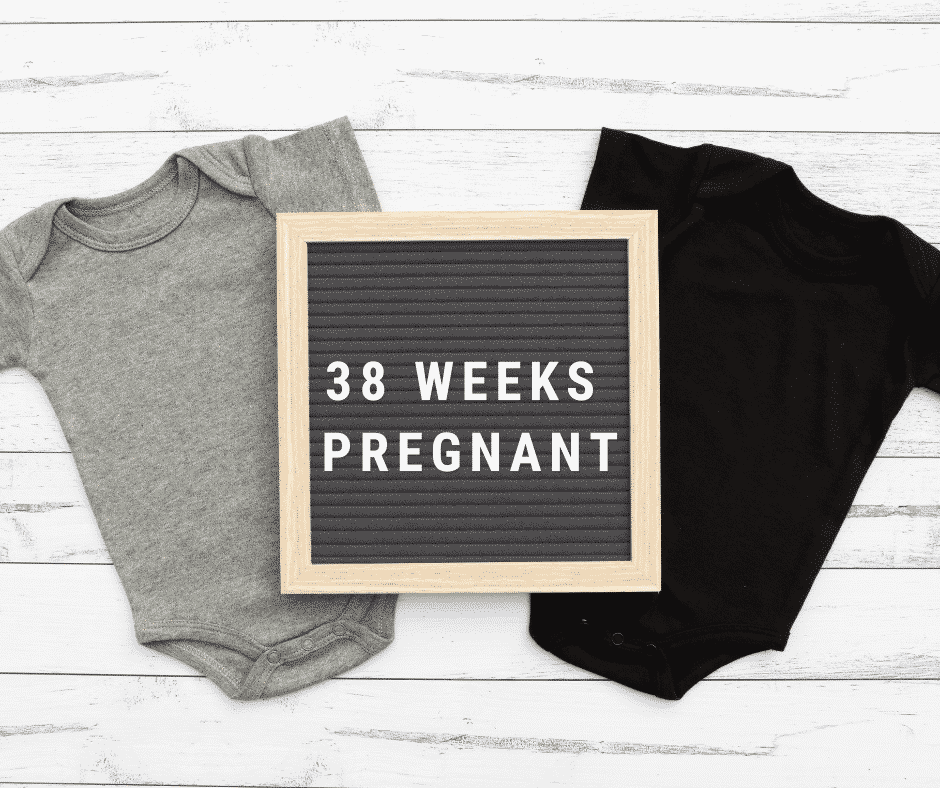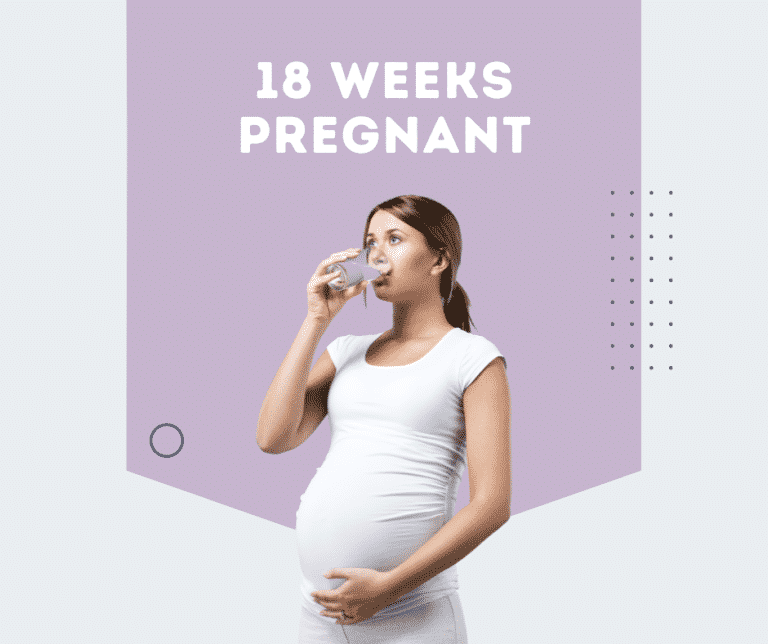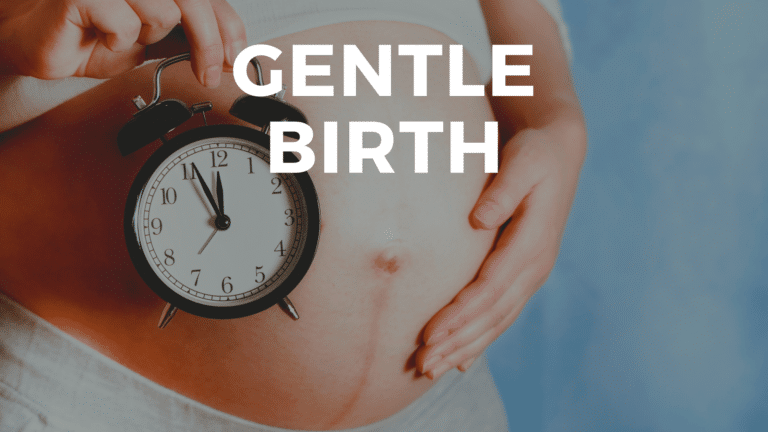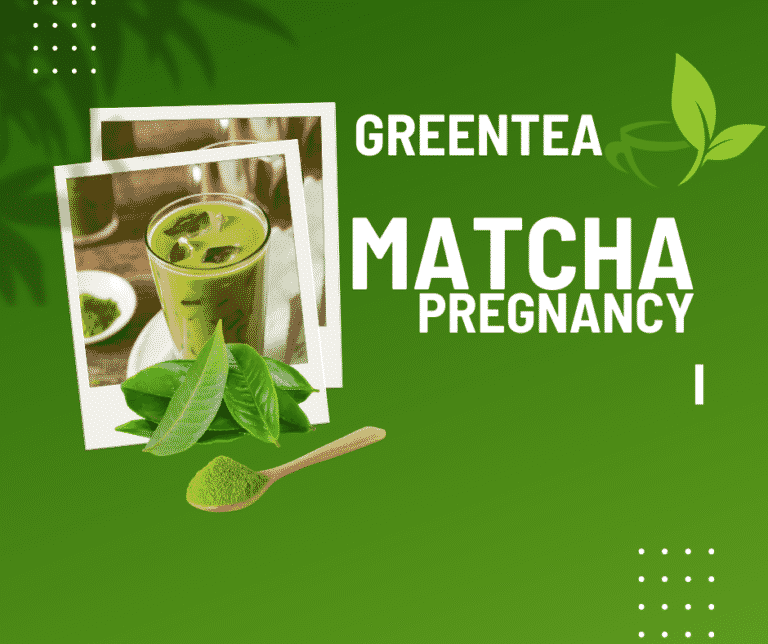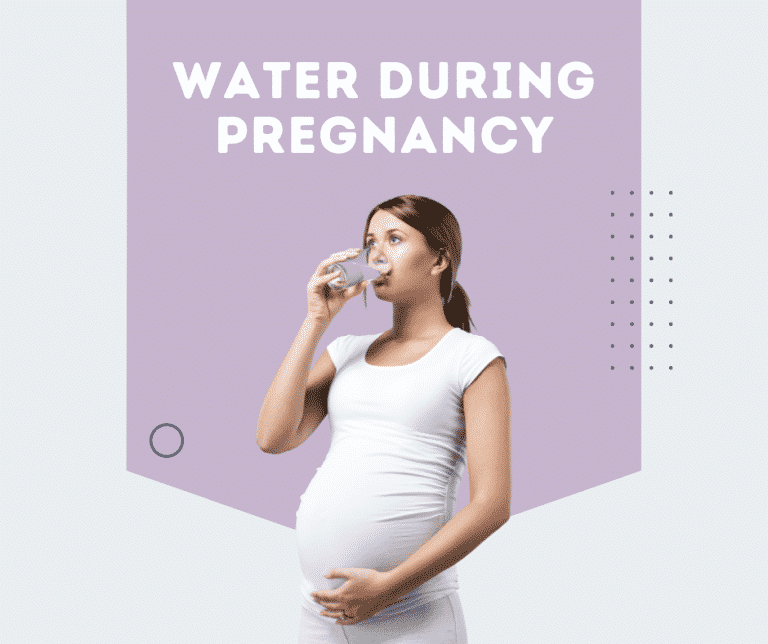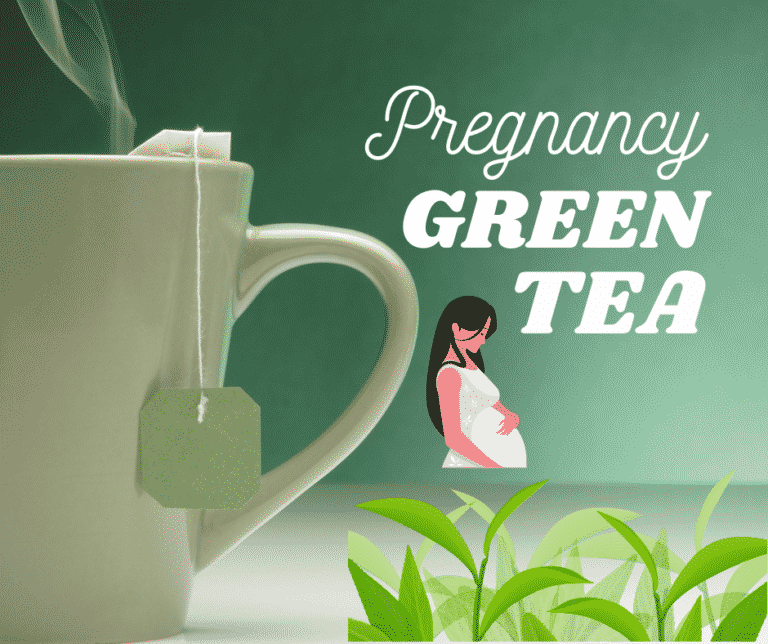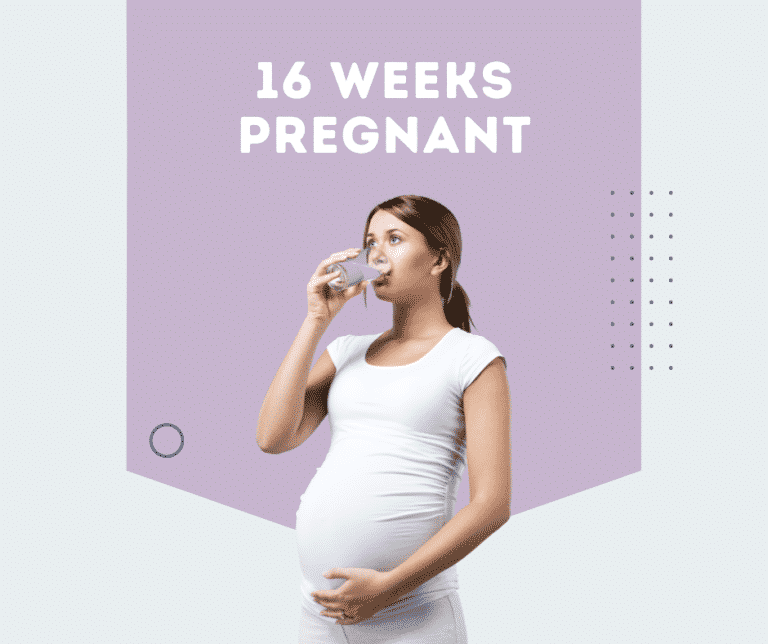38 Weeks Pregnant: Signs, Tips, Symptoms & Baby’s Development
Published on April 13, 2022 – Last Updated on October 18, 2022
By 38 weeks pregnant, your baby is almost full-term! Most babies will be born during the next two weeks. Your baby’s lungs are mature, and they are ready to breathe on their own outside of the womb. The only thing left for your little one to do is grow slightly bigger. Your belly is big and round, and you may feel some pressure below as your baby moves into position for birth. You might also be feeling Braxton Hicks contractions, which are just practice contractions that help prepare your body for labor. Get plenty of rest in the coming days – you may need it!
This blog post can discuss your body’s changes, symptoms, baby development, and tips for a healthy pregnancy. So are you ready to read that? Let’s get started!
Mom’s Body at 38 Weeks Pregnant
You may be feeling a little more relaxed as your baby moves lower in the pelvis and reduces upper abdominal pressure. Getting up to get water might actually feel like quite an effort, but don’t worry! This is totally normal for 38th-week pregnant women because their babies are nearly complete term already – even though they’re still inside of you 🙂
You may also be gaining weight at a rate of about 1 pound per week. So, if you started off pregnancy at an average body mass index, you should now be carrying around 31 to 34 pounds of extra pregnancy weight.
Braxton-Hicks contractions, also known as false labor, may become more uncomfortable now. But how can you tell if they’re the real thing? Real labor contractions cause your cervix to dilate (open), while Braxton-Hicks only prepares your body for childbirth by strengthening the uterine muscles. Read more about contractions: contraction tracker app, contraction timing rule & keeping track of contractions.
At the same time, you also feel your baby’s kicks and jabs more than ever now. And, if you haven’t already, you may even be able to detect hiccups!. These all are common before the baby’s arrival.
Third Trimester 38 Weeks Pregnant
The third trimester is the final stage of pregnancy. It lasts from week 27 to week 40, and pregnancy symptoms can peak during this time.
Common third-trimester symptoms include:
- Back pain
- Insomnia
- Swelling
- Shortness of breath
These are great signs that indicate your baby is growing healthy and strong – getting ready for the big day! Want to feel more prepared for this pregnancy week? Read more about EDD pregnancy & belly in pregnancy week by week.
38 weeks pregnant: What are your symptoms?
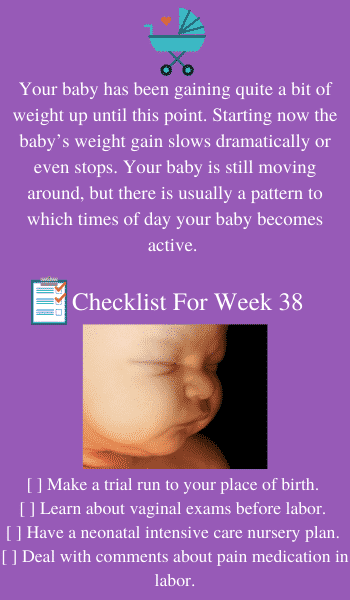
Heartburn, nausea, and indigestion
You may experience symptoms like heartburn, nausea, and indigestion in the last weeks of pregnancy. Heartburn is a burning sensation that starts in the lower chest and moves up towards the neck. Nausea is a feeling of illness with or without vomiting. Indigestion is pain and discomfort in the upper abdomen.
Constipation
You may experience constipation. This is when you have hard, dry stools that are difficult to pass. You may also have fewer bowel movements than usual. Constipation can be caused by hormonal changes, lack of exercise, and a diet low in fiber.
Mood swings
At 38 weeks pregnant, you may experience mood swings. These can be caused by hormonal changes, fatigue, and stress. Mood swings can range from feeling happy and excited to sad and irritable.
Leaky breasts
You may notice that your breasts are leaking a clear or milky fluid. This is called colostrum, and it’s the first food your baby will eat. Leaking breasts are normal and nothing to worry about. This is a common symptom when you are 38 weeks pregnant and you are expecting the labor.
Pelvic pressure
At week 38th of pregnancy, you may feel pelvic pressure. This is a sensation of heaviness or fullness in the pelvis. Pelvic pressure is caused by the baby’s head pressing down on the pelvis.
Mild backache
You may experience mild backache. This is caused by the extra weight of the baby and the changes in your posture. Back pain can also be caused by constipation and pelvic pressure.
Frequent urination
At pregnancy week 38, you may need to urinate more often than usual. This is because the baby’s head is pressing on your bladder. In addition, a urinary tract infection can also cause frequent urination.
Braxton-Hicks contractions
Also, you may experience Braxton-Hick contractions at 38 weeks pregnant. These are false labor pains that can feel like menstrual cramps or lower back pain. Braxton-Hick contractions are usually irregular and do not get stronger over time.
These are all common symptoms of most 38-week pregnant women, but every pregnancy is different. You may not have any of these symptoms, or you may have other symptoms. So, if that’s the case, be sure to talk to your doctor!
38 Weeks Fetus
By the time you reach 38 weeks, your baby is fully developed and ready to enter the world. Unfortunately, at this point, your belly is also at its maximum size, making it challenging to move around and do everyday tasks. While it may be tempting to stay in bed and wait for labor to begin, there are actually a few things you can do to help ease the discomfort and make the most of this time. First, try to stay active and get some gentle exercise each day. This will help improve circulation and keep your muscles strong.
Additionally, be sure to eat healthy meals and stay hydrated. It will help your body to cope with the strain of pregnancy and reduce the risk of complications. Finally, take some time for yourself and relax as much as possible. Labor can be unpredictable, so it’s important to mentally and emotionally prepare for whatever may happen. By following these simple tips, you can make 38 weeks’ belly a little more bearable and ensure that you’re as prepared as possible for labor and delivery.
Your baby at Week 38 of pregnancy
The arrival of this week’s baby is considered a term. The newborn measures 35cm from head to bottom and weighs 3kg on average, with most lanugo – the delicate covering that covered your child during their first few months in life- having fallen out by now!
If you had an average body mass index (BMI) before becoming pregnant, you’d likely put on between half a pound and one pound per week during the third trimester.
A full-term pregnancy lasts 38-40 weeks when the fetus is generally born.
- Your baby is approximately 35 centimeters long and weighs about 3.2 kg from top to bottom.
- The majority of lanugo, the fine coat of hair on your baby’s body, has fallen out. However, your baby still has a lot of vernix – a white, creamy substance that protects the baby’s skin from the amniotic fluid.
- Your baby’s bowels are full of meconium, which will emerge in the first few poos. Then, as your baby drinks milk, their poos will become black, green, and yellow.
Baby’s Development at 38 weeks pregnant
During the third trimester, your baby’s brain and nervous system continue to develop. The bones and muscles also grow stronger. This is the time when the baby starts to gain weight.
By the end of this week, your baby will be considered full-term. This means that they are ready to be born. Most babies are born between 37 and 42 weeks.
What does my baby look like in week 38?
As discussed previously, the baby is now about 35 centimeters long from head to bottom and weighs about 3.2 kilograms on average. The majority of lanugo, the fine coat of hair on your baby’s body, has fallen out.
Your baby will continue to grow in size, gaining approximately 0.5 lbs per week in the final weeks of pregnancy. Your baby will start to fill out as that adorable squishy baby fat accumulates around their knees, shoulders, and elbows.
Self Care Tips – Pregnancy Week 38
Prepare postpartum meals
If you’re planning on breastfeeding, start stocking your freezer with easy-to-heat-up meals that will be nutritious and satisfying. Planning ahead will help to ease any postpartum blues that might set in after the baby arrives.
Double-check your bag
Ensure you have all the essentials packed in your hospital bag well before your due date. This way, you can relax and enjoy those final days of pregnancy, knowing that everything you need is taken care of.
Go for a walk
Walking is a great low-impact exercise to do during pregnancy. It will help keep you fit, but it can also help to reduce swelling in your feet and legs.
Research distractions
If you’re worried about the pain of childbirth, spend some time researching different pain relief methods. This way, you’ll be better prepared to cope with any discomfort when the time comes.
Wear loose, cool clothing
As your body temperature rises during pregnancy, it’s essential to dress in loose-fitting, breathable clothing. This will help to keep you cool and comfortable as your due date approaches.
Do squat exercises
Squatting is a great way to prepare your body for childbirth. Not only does it help to tone your leg muscles, but it can also help to open up your pelvis, making delivery easier. Prepare your mind for labor and delivery with affirmations: positive pregnancy affirmations, birth affirmations & hypnobirthing affirmations.
Sample some labor-inducing foods
If you’re looking to induce labor naturally, certain foods can help. From pineapple to spicy dishes, there are some options to choose from. Just be sure to check with your doctor before trying anything new.
FAQs
What happens if you go into labor at 38 weeks pregnant?
If you go into labor at 38 weeks, your baby will be born healthy and full-term. However, if you go into labor before 37 weeks, your baby may be premature and require special care. After 40 weeks, your baby may be large and require a cesarean delivery if you go into labor. Therefore, it is important to talk to your doctor about when the best time for you to deliver your baby is.
Should you rest at 38 weeks pregnant?
Yes, it is essential to rest at 38 weeks pregnant. Your body is going through many changes, and you need to give it time to recover. Resting will also help you prepare for labor and delivery. Talk to your doctor about how much rest you need and when the best time for you to take it is.
How many months at 38 weeks pregnant?
You are in your ninth month of pregnancy when you are 38 weeks pregnant. You are almost at the finish line! If you have any concerns, then talk to your healthcare provider.
Other Pregnancy Weeks:
- 1 Week Pregnant
- 2 Weeks Pregnant
- 3 Weeks Pregnant
- 4 Weeks Pregnant
- 5 Weeks Pregnant
- 6 Weeks Pregnant
- 7 Weeks Pregnant
- 8 Weeks Pregnant
- 9 Weeks Pregnant
- 10 Weeks Pregnant
- 11 Weeks Pregnant
- 12 Weeks Pregnant
- 13 Weeks Pregnant
- 14 Weeks Pregnant
- 15 Weeks Pregnant
- 16 Weeks Pregnant
- 17 Weeks Pregnant
- 18 Weeks Pregnant
- 19 Weeks Pregnant
- 20 Weeks Pregnant
- 21 Weeks Pregnant
- 22 Weeks Pregnant
- 23 Weeks Pregnant
- 24 Weeks Pregnant
- 25 Weeks Pregnant
- 26 Weeks Pregnant
- 27 Weeks Pregnant
- 28 Weeks Pregnant
- 29 Weeks Pregnant
- 30 Weeks Pregnant
- 31 Weeks Pregnant
- 32 Weeks Pregnant
- 33 Weeks Pregnant
- 34 Weeks Pregnant
- 35 Weeks Pregnant
- 36 Weeks Pregnant
- 37 Weeks Pregnant
- 35 Weeks Pregnant
- 36 Weeks Pregnant
- 37 Weeks Pregnant
- 39 Weeks Pregnant
- 40 Weeks Pregnant
- Birth Plan
- Baby Due Date Calculator
- EDD Calculation
- how many weeks pregnant I am

